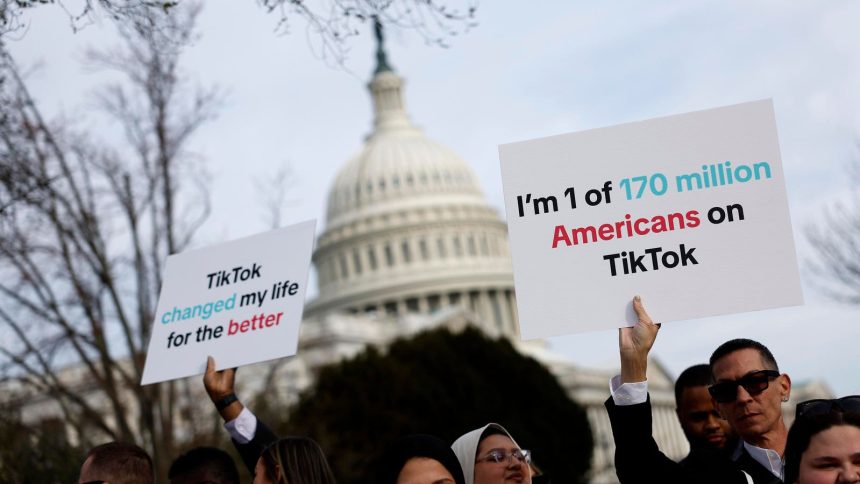The fate of TikTok in the United States hangs in the balance after a federal appeals court upheld the federal ban on the popular social media app. This decision, which affirms the government’s authority to restrict TikTok’s operations due to national security concerns, sets the stage for a potential Supreme Court showdown and leaves millions of American users in limbo. The ban, slated to take effect on January 19th, prohibits TikTok from being available on U.S. app stores, effectively cutting off new downloads and updates. While existing users might retain access initially, the app’s functionality would gradually erode without updates, ultimately rendering it unusable.
The legal battle revolves around the government’s assertion that TikTok, owned by Chinese company ByteDance, poses a national security threat due to potential data collection and influence by the Chinese government. TikTok has vehemently denied these allegations, arguing that the ban infringes on its First Amendment rights and that divesting from ByteDance, as mandated by the law, is practically impossible. The court, however, sided with the government, arguing that the ban does not target specific speech but rather aims to prevent foreign adversary control. The judges emphasized that if TikTok were to divest from ByteDance, the new owners could operate the platform without violating the law, demonstrating that the government’s primary concern is foreign influence, not content censorship.
Furthermore, the court accepted the government’s national security assessment, deeming it inappropriate to second-guess the executive branch’s judgment on such matters. The judges also concluded that requiring divestment, rather than an outright ban, represents the least restrictive means of addressing the perceived national security threat. They acknowledged the “significant implications” of the decision for TikTok and its users, but placed the onus on China’s alleged “hybrid commercial threat” for the potential disruption. The court’s reasoning underscores the delicate balancing act between national security concerns and individual liberties in the digital age.
While the appeals court’s ruling represents a significant setback for TikTok, the legal battle is far from over. The company is expected to appeal the decision to the Supreme Court, adding another layer of complexity to the case. The timing of this appeal is crucial, as it could potentially delay the ban’s implementation pending the Supreme Court’s review. TikTok might also request an injunction to block the law temporarily while the case is under consideration. The high court’s ultimate decision will have far-reaching implications, not only for TikTok but also for the broader landscape of online platforms and government regulation in the realm of national security.
Adding another twist to the saga is the potential intervention of President-elect Donald Trump. Reportedly opposed to the ban, Trump could influence the government’s legal strategy at the Supreme Court, potentially weakening the case against TikTok. He could also explore other avenues to circumvent the ban, such as directing the Justice Department not to enforce it or declaring TikTok compliant with the law, regardless of its actual status. Such actions, however, could trigger further legal challenges and disputes. The interplay of legal proceedings and political maneuvering adds a significant element of unpredictability to TikTok’s future in the U.S.
The uncertainty surrounding the ban’s implementation creates a complex scenario for TikTok, its users, and the broader digital ecosystem. While the immediate impact might not be a complete shutdown of the app, the gradual loss of functionality through blocked updates could erode its user base and influence. The long-term consequences are even more unclear, as the ban could create a precedent for government intervention in other online platforms deemed to pose national security risks. This case highlights the increasing tension between national security, free speech, and the global nature of digital platforms, posing challenging questions for lawmakers, courts, and the public alike. The final resolution, whether through judicial rulings or political compromise, will significantly shape the future of online communication and the relationship between governments and technology companies.



